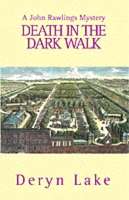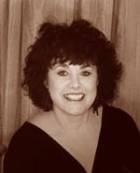
As all my readers will know, John Rawlings really lived. He was an apothecary, dwelling in London, who applied to be made Free of the Worshipful Society of Apothecaries on 22nd August, 1754, finally achieving his freedom on 13th March, 1755.
His friend John Fielding (the Blind Beak) was a historical character too; I have added to this site a critique of how he is presented on television.
In 1983, thirty years ago, I was approached by Canada Dry to try to discover the origins of H.D. Rawlings Ltd, a label for soda and tonic waters that they had inherited due to various take-overs. They had a suspicion that Rawlings was older than its rival, Schweppes, because of some correspondence which they had acquired. These letters were signed by Henry Doo Rawlings and dated 1870. The address given was 2, Nassau Street, Soho, with the inscription beneath stating, "Trading at these premises for over 100 years." If this information was true it meant that Rawlings was founded circa 1770 whereas Jacob Schweppe started his business in 1783.
Just an aside about Henry Doo Rawlings. In the reign of Queen Victoria the entire Rawlings empire eventually devolved onto one widow woman, Sarah, already in her fifties. She had working for her a young clerk called Henry Doo who, quite honestly, she must have fancied enormously. She proposed to him, offering him control of the business, provided that he changed his name to Rawlings. He readily agreed, they were married, and Henry Doo became the President of the company.
You have probably guessed that 1983 was an important date because Schweppes would then, with no challengers, be able to celebrate two hundred years of trading. So, having duly been shown Henry Doo's correspondence, I was given two weeks not only to find the founder of the firm but to prove that Rawlings was indeed older that its rival.
Strangely, I found him on the first day of looking but didn't realise it. There, in Pigot's Street Directory for 1764, was listed a John Rawlings, Apothecary. I'm afraid I didn't make the connection and passed him by.
Eventually, after going up a great many blind alleys, I went to the Guildhall in London to look up the records of the Worshipful Society of Brewers and also the Worshipful Society of Apothecaries. I shall never forget the thrill of resting my hand - contained in a white glove, of course - on the signature of Richard Whittington, who presided over the Brewers company. History came utterly alive to me and I just sat transfixed; mesmerised in fact. After all the centuries it was as bold and strong as when the famous man actually penned it.
To return to John. In the records of the Worshipful Society of Apothecaries I found that a John Rawlings,
"a foreign apothecary" (this means that he was apprenticed outside the City of London) "attended the Court and desired to be admitted to his Freedom of the Company by Redemption on the terms mentioned in the Court of Assistants of 22nd August last but not withstanding the Order of this Court of Assistants of the 5th December last whereby the Fine (which means 'fee') for admitting Foreign Apothecaries was increased, he having attended at the Hall to take up his Freedom on the Private Court Day in August last but the Court was just broke up and he was prevented by business attending again before the 5th December last, which being taken into consideration. Ordered that on his paying a fine of £7.lO.Od. to the Garden (the Chelsea Physic Garden) and Fees and passing an Examination he be made Free of the Company by Redemption. He paid the Fine."Still I could not prove that this was the John Rawlings I was looking for.
So on the penultimate day of my search I returned to the Guildhall and looked at the Society's records once more. And there it was, missed by me the first time I had examined them. John had given his address when he was made Free. It was number 2, Nassau Street, Soho.
So there he was, the link had been made. If John had become a fully fledged apothecary in 1755 and had started experimenting with water soon after, the company was definitely older than Jacob Schweppe's.
They based a TV commercial on my findings. The late great Arthur Lowe was seen in full eighteenth century costume walking up a long red carpet towards a pair of thrones on which sat a King and Queen. He was carrying a tray of tonic waters and as the camera came into close-up he turned to it and said, "Ssh! We knew how before you know who." I thought it very clever.

Having presented my case to Canada Dry - who were delighted with the findings - I put my file away and forgot about it. Then, as some of you may be aware, there occurred a terrific downturn in the market for historical novels. It started, as all these things do, across the Atlantic in America, and Britain, inevitably, followed suit. I was in a state, envisaging my livelihood flying out of the window. Then I had a chat with an old friend of mine who had been in publishing for years and he advised me to turn my attention towards crime.
I deliberated and then, like a flash, I remembered John Rawlings and started to investigate the times in which he lived. And who should I find but the Blind Beak, John Fielding himself, alive at the same time and Principal Magistrate. I had my detective and DEATH IN THE DARK WALK was born. The rest, as they say, is history.
More about the early Rawlings and Fielding Mysteries or about the more recent titles
